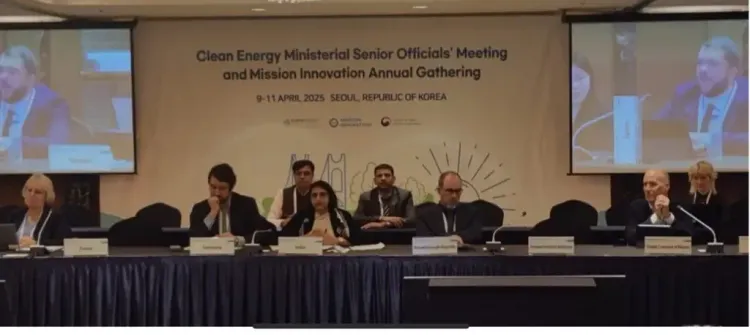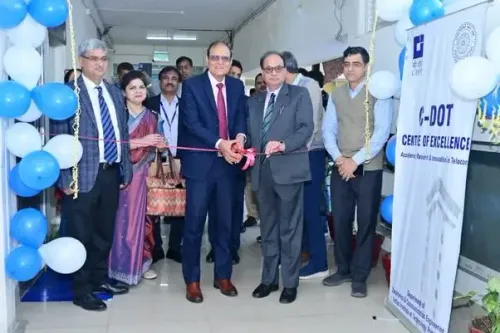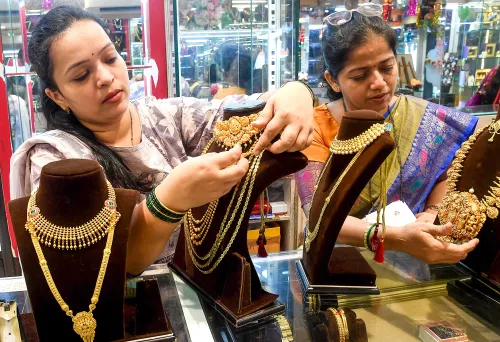Highlights of India’s BioE3 Policy and Integrated Biorefinery at Clean Energy Summit in South Korea

Synopsis
Key Takeaways
- BioE3 policy aims for sustainable fuel production.
- Integrated Biorefinery Mission fosters innovation.
- Discussions on CCUB integration were held.
- Global leaders convened for clean energy technology.
- Opportunities for biomanufacturing were explored.
New Delhi, April 12 (NationPress) The BioE3 policy and Integrated Biorefinery initiatives emerged as significant focal points during the annual assembly of Mission Innovation -- a global initiative aimed at expediting clean energy innovations -- as reported by the Ministry of Science and Technology on Saturday.
India was actively involved in the Mission Innovation annual gathering-2025, which took place in Seoul, South Korea from April 9-11.
Notably, the term ‘Mission Innovation’ was introduced by Prime Minister Narendra Modi at COP21 in partnership with former French President Francois Hollande.
The event convened international leaders specializing in clean energy technologies.
As a part of the Indian delegation, the Department of Biotechnology (DBT) engaged in discussions regarding collaborative opportunities across various missions and platforms.
The main goal has been to promote the biorefinery approach for fuels, chemicals, and materials.
The DBT showcased the BioE3 (Biotechnology for Environment, Energy, and Economy) policy, underscoring its essential role in tackling climate issues and aligning national priorities under the Integrated Biorefinery Mission.
“India’s initiatives under the Integrated Biorefinery Mission generated considerable discussion during roundtables and were well-received by Mission Innovation members and the Technical Advisory Group linked to Missions,” stated the DBT in a post on the social media platform X.
The attendees emphasized how the BioE3 Policy facilitates sustainable, low-carbon production of fuels, chemicals, and materials.
“The policy aims to create enabling technologies that support an innovation-driven manufacturing ecosystem for a low-carbon future,” the Ministry noted.
Moreover, roundtable discussions included deliberations on India’s initiatives in incorporating Carbon Capture, Utilisation, and Bioenergy (CCUB) for the biomanufacturing of fuels, chemicals, and materials.
Experts also explored opportunities for research, development, and demonstration utilizing biomass-based biomanufacturing methods.
The DBT participated in targeted sessions on biotechnology and biomanufacturing priorities during visits to clean energy facilities at Hanyang University and the Korea Institute of Science and Technology before the annual meeting.
It was noted that bio-innovations for fuels, chemicals, and materials present opportunities for Mission Innovation member countries to accelerate their decarbonization targets.









